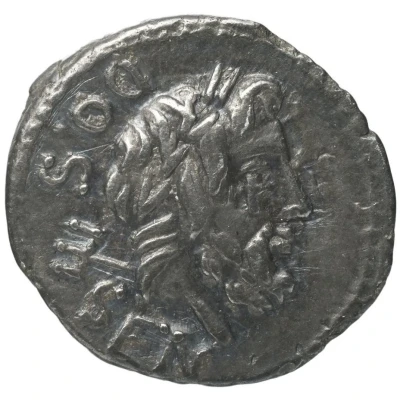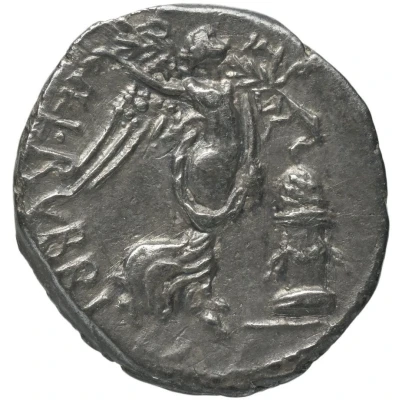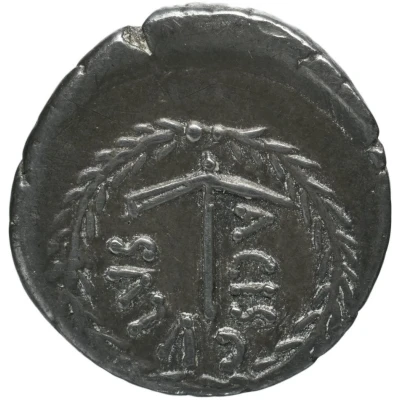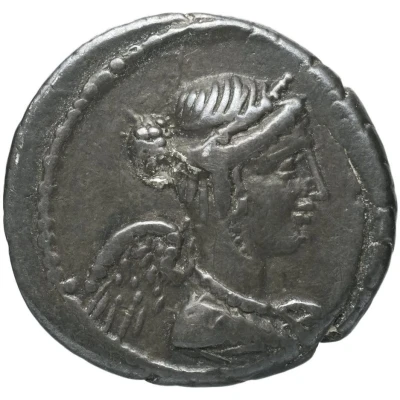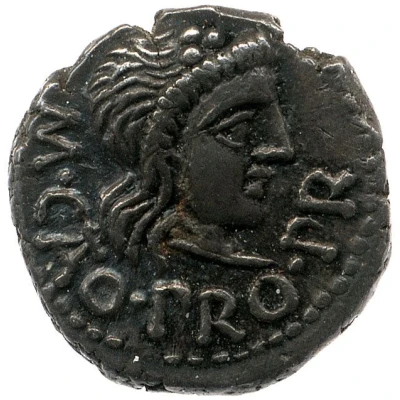
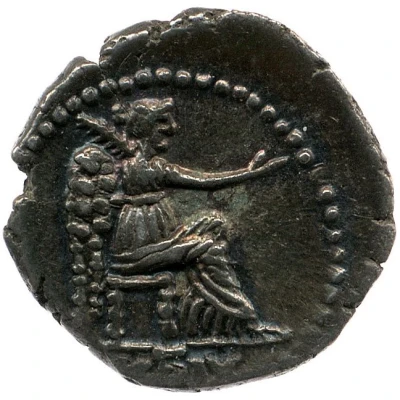

© British Museum
Quinarius Porcia: Cato Uticensis; M CATO PRO PR / VICTRIX 47 BC - 46 BC
| Silver (.950) | 1.74 g | 12.5 mm |
| Issuer | Rome › Roman Republic (509 BC - 27 BC) |
|---|---|
| Period | Republic (509 BC - 27 BC) |
| Type | Standard circulation coin |
| Years | 47 BC - 46 BC |
| Value | Quinarius (½) |
| Currency | Denarius of 16 Asses (141 – 27 BC) |
| Composition | Silver (.950) |
| Weight | 1.74 g |
| Diameter | 12.5 mm |
| Shape | Round (irregular) |
| Technique | Hammered |
| Orientation | Variable alignment ↺ |
| Demonetized | Yes |
| Updated | 2024-10-06 |
| Numista | N#160982 |
|---|---|
| Rarity index | 89% |
Reverse
Winged Victory seated right, draped, holding patera in extended right hand and palm branch in left hand.
Script: Latin
Lettering: VICTRIX
Edge
Rough
Comment
Mr. Crawford's estimate for this type is 50 right-hand corners and 56 reverse corners.Cato of Utica (95-46 AC.), the descendant of Cato the Elder (234-149 AC.), in the tradition of his great-grandfather, was a republican at heart. He joined Pompey's camp after Caesar crossed the Rubicon. After Pharsalus, he took refuge in Africa at Utica, fortifying it and choosing Scipio, from an illustrious family, over Labienus, the great military commander, as leader of the Pompeian party. When Scipio was defeated at Thapsus, Cato shut himself away in Utica, preferring to commit suicide than fall alive into Caesar's hands. He thus became the model of the republican martyr and the upright Roman, who had declared that he would rather die with the Republic than live one day without it. His wish was granted. The right and reverse sides of this coin find their model in a denarius of Marcus Porcius Cato struck in 89 B.C. at the height of the Social War.
CGB
Interesting fact
One interesting fact about this coin is that it features a rare image of a woman on one of its sides. The coin's reverse side depicts Victrix, the personification of victory, which was a common motif in Roman coinage. However, the image of Victrix on this particular coin is unique because it shows her standing on a globe, surrounded by a wreath, and holding a trophy. This representation of Victrix was only used on a few coins during the Roman Republic period, making it a distinctive feature of this Quinarius.
